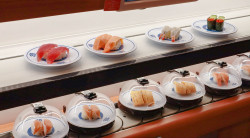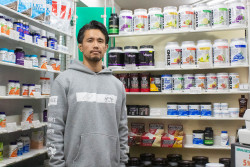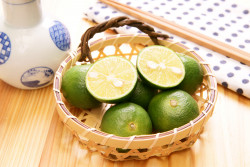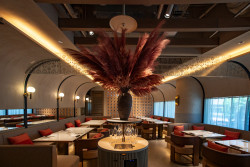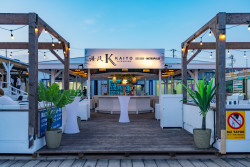
July 28, 2018

Suigian
Embracing traditional Japanese culture through performance, cuisine and history
By Metropolis
Nihonbashi, the center of old Tokyo, is known for its craftsmanship, the oldest department store in Tokyo and refined Japanese cuisine and culture. It’s a constantly evolving area with a spectrum of new buildings and offices and an array of projects focusing on preserving the area’s link to its rich and fascinating past.
A stone’s throw away from the renowned Fukutoku Shrine, Suigian is the brainchild of Japanese polymath Hidetomo Kimura. An expert in ornamental fish, designer, cultural expert and producer, Kimura is at the forefront of the recent cultural renaissance happening in Nihonbashi. Suigian, a theater, restaurant and bar lounge is like nothing else in Tokyo. It combines Kimura’s love of traditional Japanese performing arts, authentic Japanese cuisine and design.
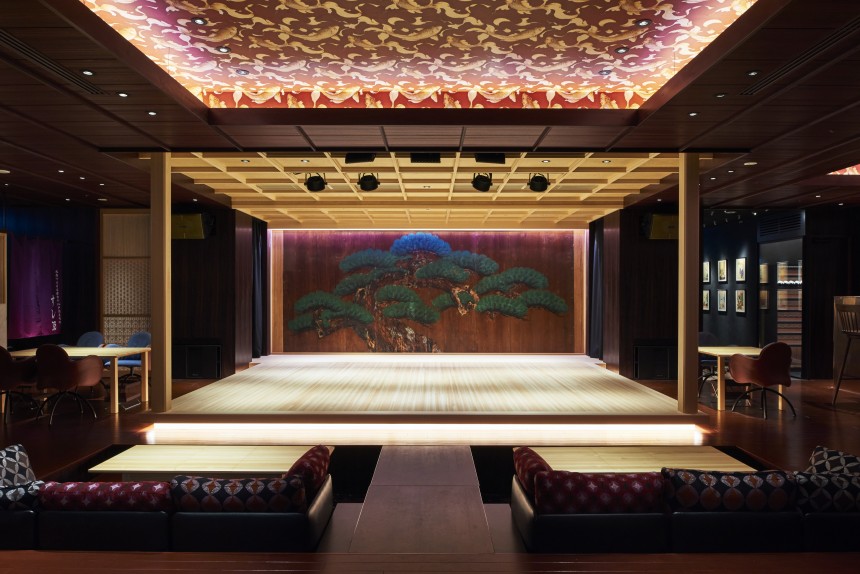
Kimura, also the man behind the popular Art Aquarium project (located in nearby Coredo Muromachi) views Suigian as a chance for locals and tourists alike to seize the chance to see a variety of traditional Japanese performances including noh, kyogen, gei nagon (geisha performance) and Nihonbuyo (dance) in a relaxed and affordable setting.
Traditionally, the opportunity to see noh or kyogen comes at a price. Tickets are often hard to come by, expensive and the performances are very long and, to many, incomprehensible. Suigian strips down the performances to show just the highlights and performances come with some explanations and descriptions.
The cuisine on offer is first-rate traditional Edo (old Tokyo) fare with sushi from Sushiei, Japan’s oldest existing Edo-style sushi restaurant, Japanese tea by Fukujien, a long-established Kyoto store that has been preserving Japanese tea culture for more than 200 years, and traditional sweets by Oimatsu and Kamesuehiro, long-established Kyoto confectionery stores. Alcoholic drinks have been selected by Takuro Tatsumi, an actor who is also renowned as a food and wine connoisseur.
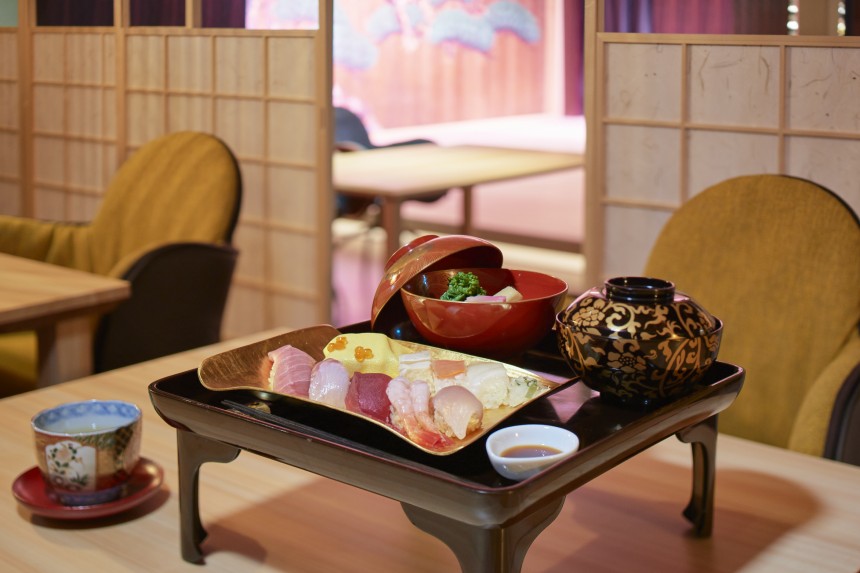
The vintage bowls and cutlery are also examples of authentic Japanese craftsmanship as they come from legendary Nagasaki restaurant Fukiro which sadly shuttered its doors last year. The lush interior designed by Kimura is complete with ornate goldfish design, miniature noh masks and other rarities from Kimura’s own personal collection of Japanese artifacts.
“The restaurant is also located next to the Fukutoku Shrine, which has stood here since ancient times, and the site also saw the beginnings of the Ryotei Momokawa restaurant, which operated prosperously through the Edo (1603 – 1868) and Meiji (1868 – 1912) periods,” says Kimura. “In endeavoring to create a facility in keeping with the site’s illustrious history, I conceived the idea of making it a place for disseminating the attraction of truly authentic Japanese culture. Under the theme of ‘Tradition and Innovation: Creating while revitalizing,’ we have prepared an extraordinary world that people will be experiencing for the first time.”
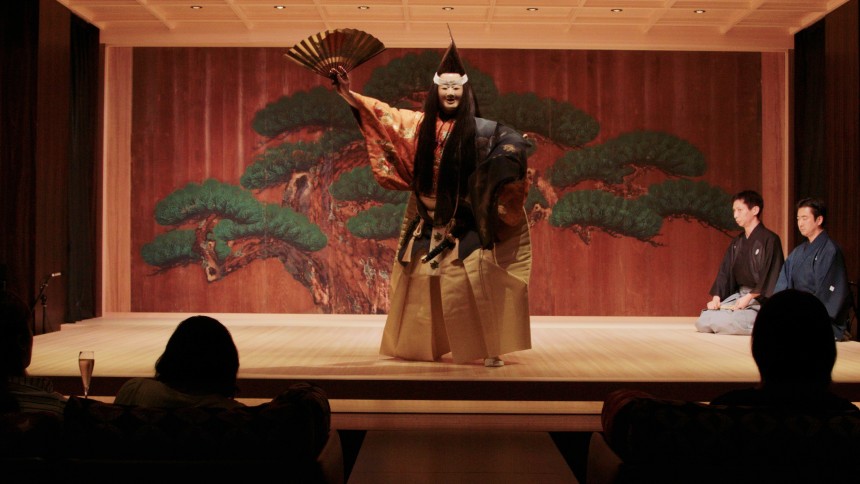
It’s a stunning venue with an abundance of history and a project which spearheads Nihonbashi’s revitalization as a cherished cultural hub. Suigian, then, is a microcosm of the Nihonbashi area as a whole. Fusing a modern concept with historical and traditional culture, Kimura has reflected in Suigian what has been happening in the local environs — a preservation and deep understanding of Japan’s rich and vibrant past while welcoming new developments and future possibilities.
Suigian
Opening hours:
Mon – Sat 11am – 11:30pm, L.O. 11pm
Sun & Public holidays 11am – 9pm, L.O. 8:30 pm
B1F, 2-5-10, Nihonbashi-Muromachi, Chuo-ku
A 1-minute walk from Exit A6 of Mitsukoshimae Station on the Tokyo Metro Ginza Subway Line / Hanzomon Subway Line. Direct access from COREDO MUROMACHI 2.
suigian.jp/en/


